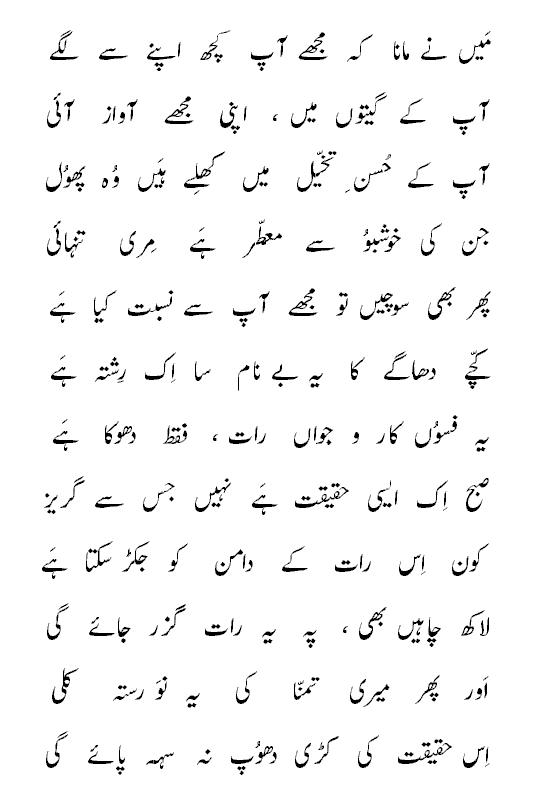|
By Abdus Sattar Ghazali
The Urdu Academy of North America held its monthly literary event on October 20, 2013 at the Chandni Restaurant, Fremont/Newark, CA. The first session of the event was dedicated to the life and work of prominent contemporary poetess Fahmida Riaz. The second session was dedicated to the life and work of another contemporary poetess Rakhshanda Naveed who graced the event with her presence.
Rakhshanda Naveed presided over the first session. Prof. Lubna Manzar was MC while Mohammad Ali Naqvi from New Delhi was the chief guest.
Prof. Lubna Manzar presented a maqala on the life and work of Fahmida Riaz.
As usual a number of Urdu enthusiasts recited the poetry of Fahmida Riaz: Arvind Kumar, Ishaq Nagpuri, Hatem Rani, Ibrahim Siddiqui, Talat Khan, Jaafar Shah, Almas Shabvani, Arshad Rashid and Ahmed Shahwar.
Fahmida Riaz was born on July 28, 1946 in a literary family of Meerut, UP, India. Her father, Riaz-ud-Din Ahmed, was an educationist, who had a great influence in mapping and establishing the modern education system for Sindh. Her family settled in Hyderabad following her father's transfer to Sindh. Fahmida learnt about Urdu and Sindhi literature in childhood, and later learnt Persian.
Her first poem was published in Funoon of Ahmed Nadeem Qasmi, when she was merely 15. Her first collection of poetry appeared just after two months of marriage at the age of 22.
Her work is remarkable for its emotionally charged references to social and political injustice. She has been a prominent voice in the feminist struggle in Pakistan, where her poems both directly and insidiously erode at the foundations of male dominance. She has also published several gender equal stories, feminist translations, and some deconstruction of the criticism of feminist work.
Her first poetry collection Baden Darda appeared in 1973 and jolted the Urdu world. Second volume was published in 1976. Kia tum poora chand na dekho gay, a collection of her verses, was first published in Hindi from India, later in Urdu in Pakistan.
In 1988, another collection was published under the title of Apna Jurm Saabit Hae. Three volumes of her novels and collections of short stories were published in later years.
Her early life was marked by the loss of her father when she was just 4 years old. She had already been writing poetry at this young age. Her mother, Husna Begum, supported the family through entrepreneurial efforts until Fahmida entered college, when she started work as a newscaster for Radio Pakistan. Fahmida's first poetry collection was written at this time.
Fahmida lost her son Kabeer in October 2007. He drowned while swimming with friends on a picnic. This was soon after Fahmida had translated fifty of Rumi's poems from Persian into Urdu, dedicated to Shams Tabriz. She was MD on the Urdu Dictionary Board from 2000-2011.
She received many awards for her distinguished work including: (1) Hemmet Hellman Award for Resistance Literature from Human Rights Watch (2) Al Muftah Award for Literature: Poetry (3) Sheikh Ayaz Award for Literature: Poetry from Sindh Government (4) Presidential Pride of Performance Award for Literature: Poetry and (5) Sitara -e- Imtiaz on March 23, 2010 by the President of Pakistan.
See More Pictures
|